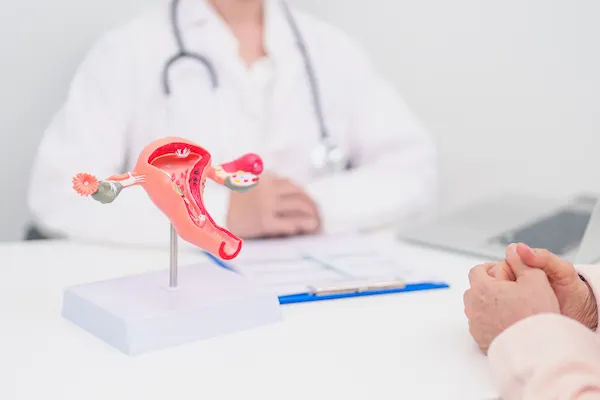- Female
- 31 Years
- 29/01/2025
I'm a TB patient and it's been 9 months since my surgery. My doctor has me on Rcinex and said I should continue it for 3 more months. I'm wondering if I can take ipills, will they work for me? Also, my periods are a bit irregular, sometimes 1 or 2 days off, or even 34 days. It's been 18 days since my last period, and I'm a bit worried. Can you help?
Answered by 1 Apollo Doctors
taking i-Pills (emergency contraception), as TB medications can interact with hormonal contraceptives, potentially reducing their effectiveness; additionally, your varying menstrual cycle and timing since your last period may impact the efficacy of i-Pills so consult gynaecologist
Dr. Dr Khaleel Suggests...
Consult a Obstetrician and Gynaecologist
Answered 04/07/2025
0
0

More Obstetrics & Gynaecology Health Queries
View allI'm trying to figure out if the Chinese gender predictor really works for determining the sex of a baby. Ive come across some stuff online, and now Im just really curious. Is there any truth to it, or is it more of a myth?
FALSE
Answered by 1 Apollo Doctors
My bartholin cysts keep coming back and they're so painful, sometimes they even burst on their own. Can you explain all the treatment options like marsupialization or surgery, and what actually works best long-term?
For recurring and painful Bartholin cysts that burst on their own, several treatment options exist, with marsupialization and surgery being common choices. Marsupialization, a surgical procedure, creates a permanent opening in the cyst, allowing fluid to drain freely, while other surgical options can include simple incision and drainage or, in more complex cases, removal of the Bartholin gland. While marsupialization can offer long-term relief for some, others may find that the cysts return, and surgical removal may be the best option for long-term resolution. It's crucial to consult with a healthcare provider to determine the most appropriate treatment based on your individual needs and medical history.
Answered by 1 Apollo Doctors
I'm 13 weeks pregnant and just got my NT scan results today. I'm 29 years old and the scan showed an NT measurement of 1.7mm. Is that within the normal range? Should I be concerned about it?
Nuchal translucency (NT) scan sometimes called the early morphology scan done between 11 and 13 weeks...less than 3.5mm at 13 weeks is considered normal... So nothing to worry it's within normal range
Answered by 1 Apollo Doctors
Disclaimer: Answers on Apollo 247 are not intended to replace your doctor advice. Always seek help of a professional doctor in case of an medical emergency or ailment.





